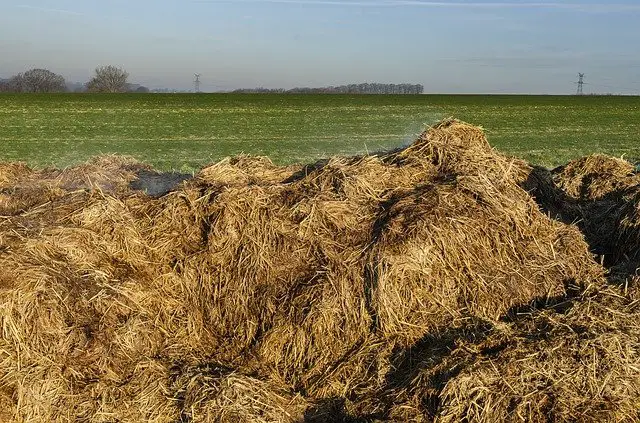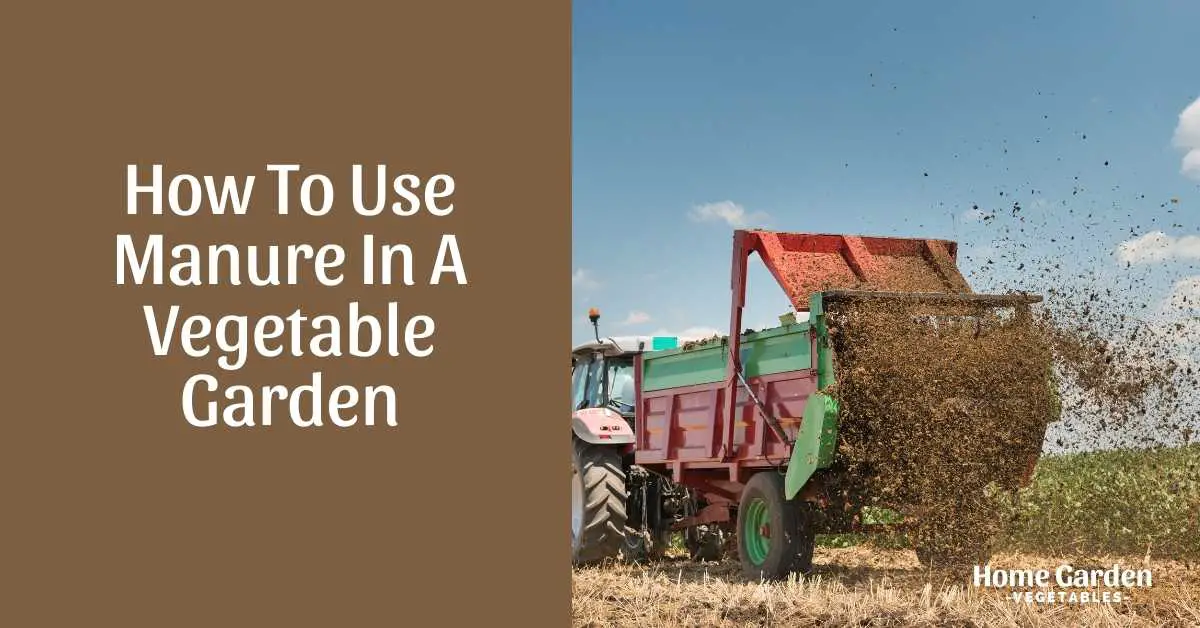First-time vegetable gardeners are put off by manure, smelly, dirty and full of bacteria. But the seasoned gardener sees it differently because to us its black gold. Contrary to popular belief manure does not smell if you use it correctly. Find out everything you need to know about how to use manure in a vegetable garden.

Manure – what it is, its benefits and how to use Manure in a Vegetable Garden
What is manure?
It is an organic matter, normally obtained from the faeces of animals and decomposed plant waste, and is used in a big way as fertilizer in farming to improve the soil. There are three main types of fertilizers, namely:
Reader Poll: What online courses would interest you?
Animal
like cow and horse dung, chicken, pig, rabbit, sheep, and turkey faeces, as well as guano from bats and seabirds, all of which have different qualities and are used in different ways to fertilize the soil.
Compost
The decomposed remainders of organic material – usually from plants, but frequently includes some of the bedding of animals as well as their dung.
Green Fertilizer
Obtained from crops grown for the sole purpose of ploughing them into the soil to increase the fertility of the soil with their nutrients and organic matter.
Subscribe to our newsletter!
Benefits of using it in your garden
There’s a lot to learn when you take those first steps to become a gardener, including pruning, clipping, fertilizing, weeding, watering, and much, much more. At some point between having a black thumb to a green thumb, you will more than likely be faced with a heap of steaming, foul-smelling manure. Although this might seem quite disgusting to you at first, once you learn how to use it properly, and the benefits it provides, you will liken it to gardening gold!
There are enormous benefits to digging in or spreading a good fertilizer over your garden beds. Every seasoned gardener knows that, to have a fantastic garden, you need happy, healthy soil. The quality of the soil depends a lot on nutrient density, salinity levels, pH levels, drainage, and more, all of which occur when fertilizer is applied in the correct way. The advantages of using fertilizer in your garden soil include:
• Improved soil structure
• Increased nutrient content
• Enhanced micro-organism activity
• Improved moisture retention
Other benefits include
Plants need various nutrients in order to flourish, so when used properly, fertilizer can often be a money-saver for farmers. They can also make money by selling their fertilizer or fertilizer products to golf-courses, landscapers, gardeners, or anyone else who would need nutrients to cultivate plants.
How to tell when it is ready for use
While using fertilizer in the garden can help to improve soil and supply plants with the nutrients they need to grow, it is important to know how to use it properly.
Adding too much will result in nitrate leaching, excessive vegetative growth, nutrient runoff, as well as salt damage, with certain fertilizers.
Adding fresh manure where food crops are planted could increase the risk of contamination by pathogens that cause disease.
Normally, when using fertilizers, other than those which are commercially produced, in a home garden, the best way to prevent problems, is to let the fertilizer age first, for about six months at least. The perfect way to do this is to spread it during autumn or winter and mix it into the soil in the garden in spring, just before planting.
How to use fertilizer in a vegetable garden
As mentioned above, it should be allowed to stand for a while to compost, before being used in the garden to grow vegetables. Commercial fertilizers are already composted when you purchase them, but if you are using fresh fertilizer, it is very important that you allow it to compost first, before applying it to the soil in your garden. It depends on the season and the type of fertilizer you have, as to how long it should stand. Add it to your compost heap gradually, over a few days or weeks, so that plenty of air can circulate in the compost.
You can speed up the curing process by adding other organic matter such as leaves and grass clippings, which sill break up the fertilizer. Stop adding it to your compost heat about two months prior to using it in your vegetable garden.
You will know when the fertilizer is well composted and ready to use when it is dry, no longer warm and steamy and most of the unpleasant smell is gone.
Even though it is fine to incorporate fertilizers directly into the soil in your garden in autumn – farmers do it regularly, it is better to compost it first if you are using cow or horse dung, or bird faeces.
There is less likelihood of chicken faeces and cow dung transmitting diseases to vegetables. However, the best type of fertilizer to use in your vegetable garden is composted chicken faeces since it has more nutrients needed for growing vegetables than most other fertilizers and there is also little to no risk of it transmitting disease.
Important! Never use dog, cat, or pig faeces in compost heaps or vegetable gardens! These types of fertilizers could carry parasites that will more than likely survive and infect humans, than those found in other types of fertilizers. It is also a good idea to not allow your pets into your vegetable garden.

